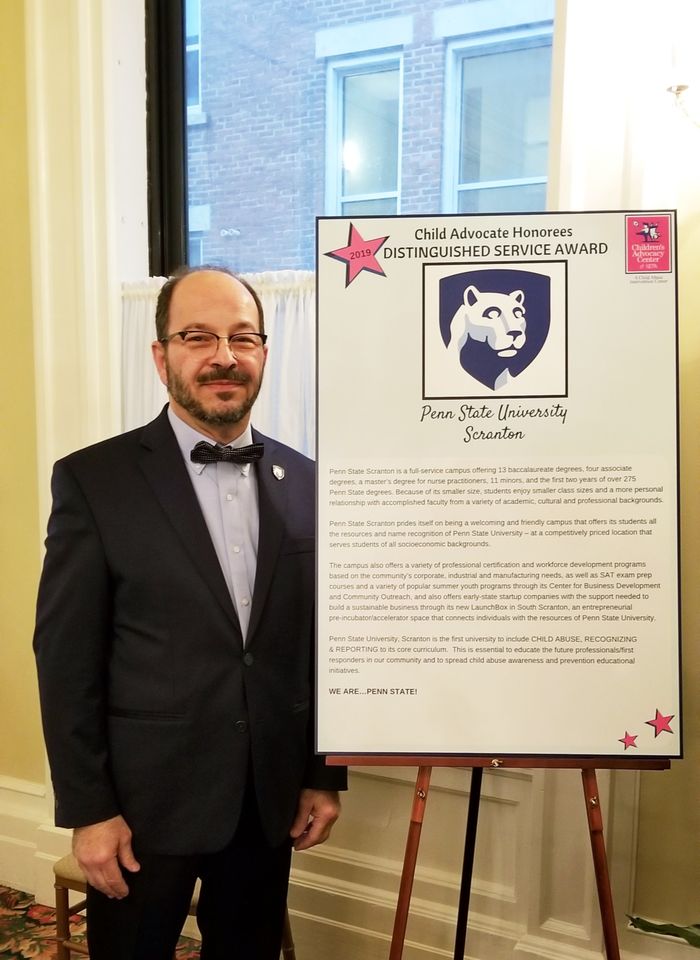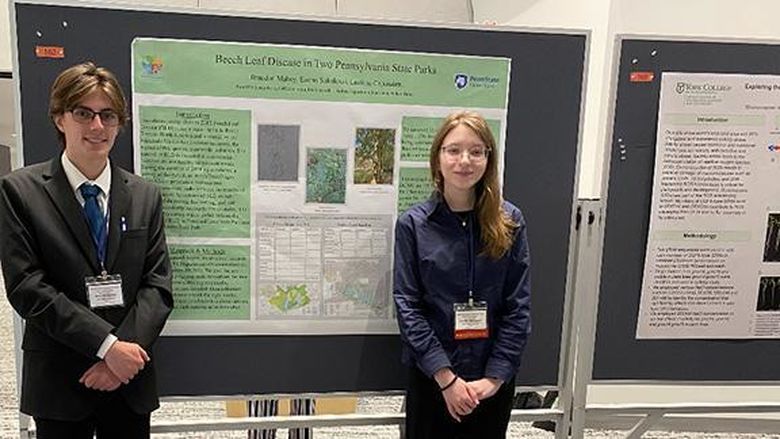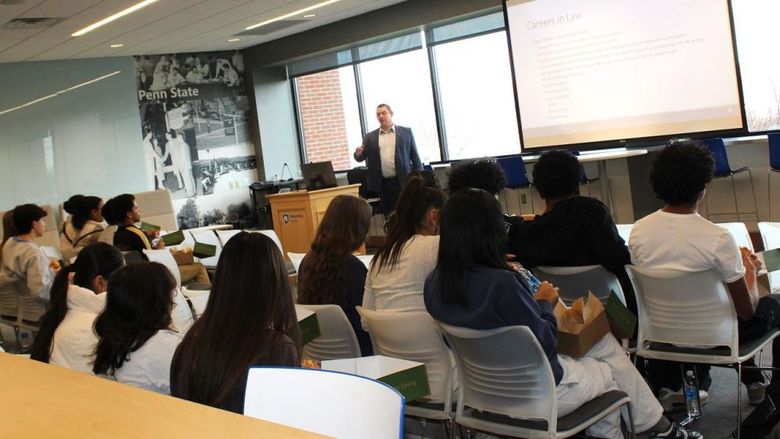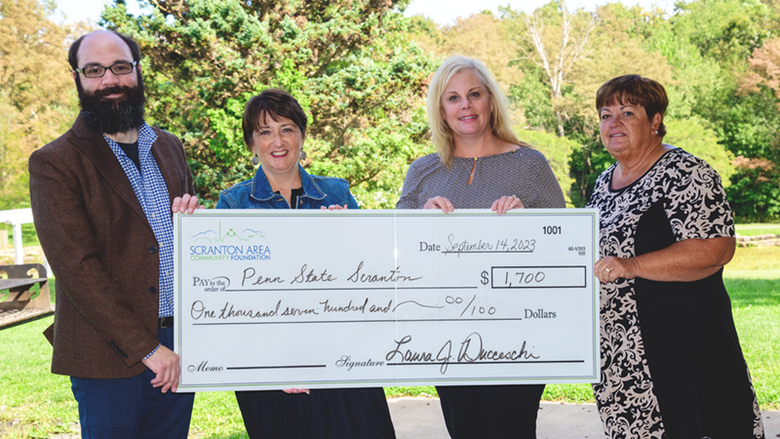DUNMORE, Pa. — Penn State Scranton and Chancellor Marwan A. Wafa were recently honored by one of northeast Pennsylvania’s preeminent child abuse intervention centers.
At its recent Cocktails by Moonlight fundraiser, the Children’s Advocacy Center of Northeastern Pennsylvania (CAC/NEPA) presented Wafa and several other community leaders with awards for distinction as child advocates.
The event was held April 26 at POSH at the Scranton Club in downtown Scranton. April was National Child Abuse Prevention Month.
The other honorees were: Deborah Rothenberg, Wayne County first assistant district attorney; Dr. Mel Wolk and the Ronald McDonald House of Scranton; and Scranton Preparatory School senior Lauren Golden.
“Dr. Wafa is such a great community collaborator,” said Mary Ann LaPorta, executive director of CAC/NEPA. “His total being just radiates positivity. And he’s always so warm and welcoming.”
Wafa and the campus received CAC/NEPA’s Distinguished Service Award in recognition of the campus’ Child Maltreatment and Advocacy minor.
Both Penn State Scranton and University Park offer the cooperative minor, which is available to human development and family studies (HDFS), nursing and psychology students.
Courses at Penn State Scranton are taught by Janet Melnick, associate teaching professor of HDFS and program coordinator; Melissa LaBuda, assistant teaching professor of HDFS; Parminder Parmar, associate professor of HDFS; and Allison Tomczyk, instructor in nursing.
Currently, there are 14 students enrolled in the minor, with additional students who haven’t declared a minor yet also taking coursework, according to Melnick, who co-coordinates the minor with Michael Evans, assistant chief academic officer and associate teaching professor of nursing at Penn State Scranton.
“It is imperative HDFS, nursing and psychology students have an understanding of the causes, treatments and practice methodologies for working with victims of child abuse. It enhances our curriculum in all of these areas and forges an alliance with the community,” Melnick said. “Our students are prepared to identify and work with victims of child abuse and neglect and that is a win-win for everyone.”
“It’s important for these degree programs to have this as part of the curriculum, so that when our graduates are out in the world, they’ve been exposed to this,” Wafa added.
Through the minor, the campus has developed a close partnership with CAC/NEPA. LaPorta and her staff regularly give presentations on campus throughout the school year, and a number of Penn State Scranton students have done internships at CAC/NEPA. That list includes alumna Lynn Pacheco, who now works at CAC/NEPA as a child victim advocate.
“Nothing is more important than education, and to know that these students will be front-line responders who will know how to talk to kids is so powerful,” LaPorta said. “They’re really getting a head start.”
Now 21 years into its existence, CAC/NEPA has assisted more than 15,000 child and adolescent victims of abuse and neglect.
The center operates on a multidisciplinary approach that involves law enforcement and child protection agency professionals as a means of more effectively serving victims.
LaPorta often uses a quote to put the center’s mission in perspective: “We cannot change what has already happened. But we can change what happens next.” That adage aligns perfectly with Wafa’s aspirations for the campus minor.
“It has become a part of the culture of the campus to bring awareness to this sad situation that we have to deal with,” Wafa said.
“But, what can we do to bring a larger scale of awareness to this big problem? How do we protect children? How do we educate those who will become parents? We need to try to prevent it before the fact, because who knows the deep wounds that abuse victims carry with them throughout their lives. It’s awareness, and then prevention.”






